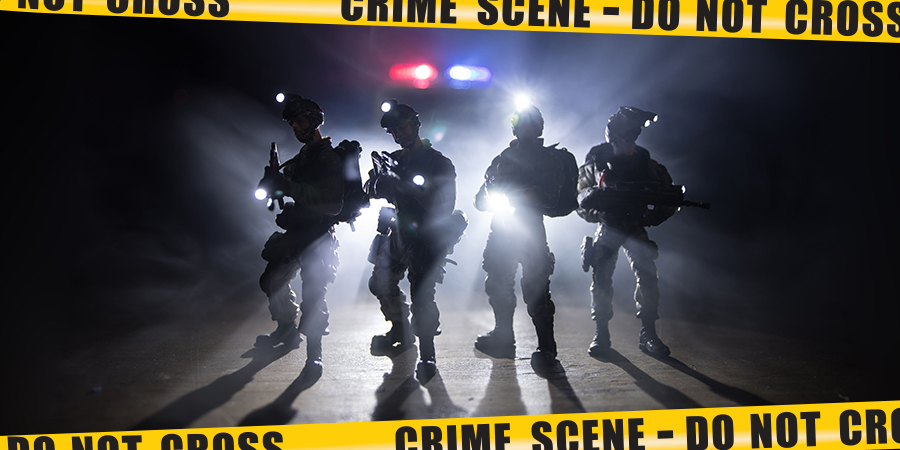SWAT teams operating in cordoned-off crime scenes need medics available in case an officer gets hurt or a victim needs help.
Whether the crime scene involves a hostage situation or an armed gunman with mass casualties, medical care might be needed. But access to an active tactical scene isn’t open to just anybody.
One solution to getting medics inside the yellow tape is to create specific emergency medicine positions for these scenarios, such as a tactical medic to support the SWAT team.
If all goes as planned, Galveston might be getting a few tactical medics soon thanks to the efforts of Dr. Kent Harkey, assistant medical director of Emergency Medicine at the UTMB League City Campus and medical director of Galveston Area Ambulance Authority.
If the city of Galveston approves a tactical medic policy, a training program would move forward with staffing, training and equipment, Harkey said.
Tactical medics provide preventative urgent and emergent medical care during high-risk, extended duration and mission-driven law enforcement special operations.
These medics planned for the island would be members of the Galveston Fire Department operating under the protocol authority of the medical director and the first responder organization license that the Galveston Area Ambulance Authority holds from the Texas Department of State Health Services. The fire department is already part of the Galveston Area Ambulance Authority.
“My goal is to have at least two members on every shift, and every member of the Fire Marshal’s Office certified,” Harkey said. “This would give us 10 personnel and allow for operational redundancy, normal shift rotations and scheduled time off.”
Most of the future tactical medics will be medics first and possibly cross-train as law enforcement personnel.
“We are requiring candidates to be currently certified EMTs trained to the National Association of Emergency Medical Technicians (NAEMT) Tactical Casualty Combat Care (TCCC) or Tactical Emergency Casualty Care (TECC) standard, as well as have received a Basic SWAT Medic certification,” Harkey said.
He recommends that candidates get the Tactical Paramedic or Tactical Responder certification from the International Board of Specialty Certification as an additional standard because it provides third-party validation in the form of a recognized, tested certification from a professional credentialing organization.
The National Tactical Officers Association states that “the ability of Tactical Medic providers to develop medical threat assessments, render immediate medical care in austere environments, and provide logistical support will further the health and safety of law enforcement personnel and reduce the incidences of injury, illness, disability and death associated with training and tactical operations.”
At least three agencies in Texas have tactical medics, including the Bryan Fire Department, Killeen Fire Department and the Fort Worth Police Department.
“There is no single standard for tactical medicine in the law enforcement environment,” Harkey said. “The agencies that are ‘doing it right’ have fully integrated medical sections involved in the planning, training and execution of their special operations. We hope to have the Galveston Fire Department in the same ranks and look forward to working with UTMB closely as the program evolves.”
